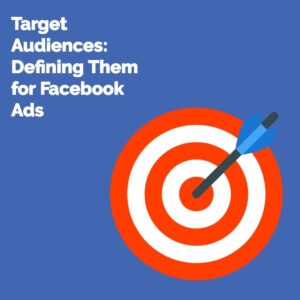Meta, the social media giant formerly known as Facebook, is once again stirring the pot with its ad-targeting practices. This time, the news is about removing more detailed targeting options for ad campaigns, a move that is raising eyebrows and igniting discussions around privacy, effectiveness, and the future of online advertising.
What’s being removed?
The latest purge focuses on options related to “sensitive topics” like health, race or ethnicity, political affiliation, religion, and sexual orientation. This follows a similar move in 2022, highlighting a trend towards broader audience targeting.
Why the change?
Meta cites multiple reasons, including user expectations, concerns about potential discrimination, and a desire to simplify the ad platform. They also claim it aligns with legal and regulatory requirements, possibly hinting at future data governance changes.

Impact on advertisers:
Existing campaigns using these options will continue running until March 18, 2024.
This could mean broader targeting approaches, leveraging Meta’s automated tools like Advantage Audiences, or exploring alternative platforms entirely.
Reactions are mixed:
Some advertisers welcome the move as a step towards a more ethical and inclusive advertising ecosystem. Others worry about diminished reach and control, potentially impacting their campaigns’ effectiveness. Privacy advocates see it as a positive development but remain cautious about Meta’s overall intentions and data practices.
The bigger picture:
This change is part of a broader trend in the online advertising landscape. With stricter privacy regulations and growing concerns about user tracking, platforms are shifting towards contextual targeting and broader audience segments. This could fundamentally reshape how advertising works for businesses and consumers.
Questions remain:
Is this a genuine move towards a more privacy-focused future or a strategic adaptation to regulatory pressures? Will broader targeting be effective in reaching the right audiences? How will these changes impact the overall diversity and inclusivity of online advertising?
Meta’s latest decision is sure to fuel ongoing debates about the balance between personalization, privacy, and the effectiveness of online advertising. As the dust settles, one thing is clear: the digital marketing landscape is evolving rapidly, and businesses and consumers must adapt to navigate this ever-changing terrain.
This is just a starting point for your article. You can expand on it by:
Including perspectives from different stakeholders, such as privacy experts, industry analysts, and small businesses.
They were discussing potential alternative targeting methods and their pros and cons.
I am exploring the broader implications for the future of online advertising.
Remember to cite your sources and maintain a neutral tone while presenting different viewpoints. Good luck with your article!